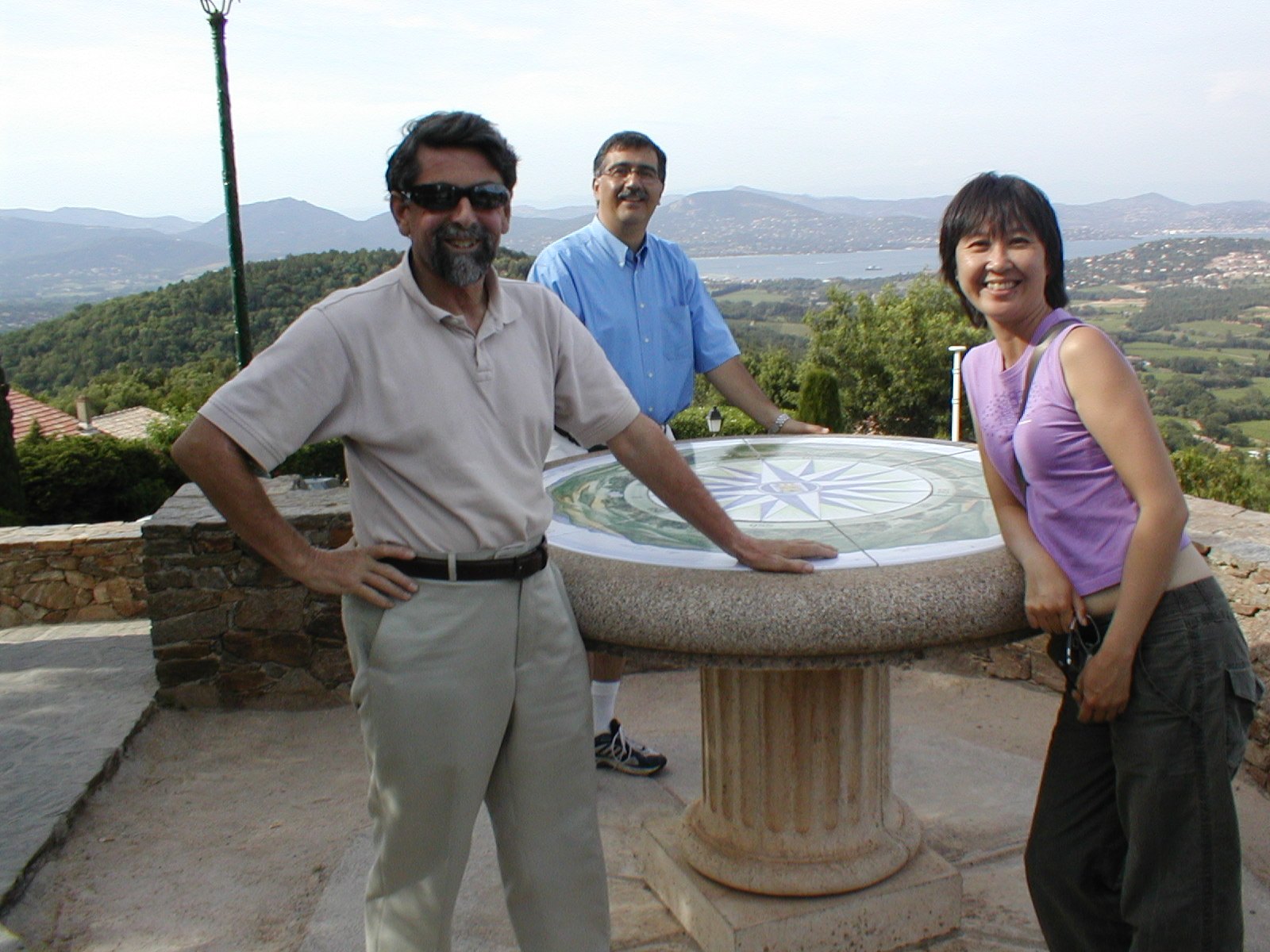My Journey to BoP Service Research: Expanding the Horizons of our Research Community
The interest on service research in Latin America has started to picking up, but there is a lot of work still to be done
From research on WEIRD* societies to Latin America
I attended the first service conference in 1992. It was a workshop organized by Professor Christian Grönroos in Helsinki, while I was a PhD student at the University of Manchester working with Professor Brian Moores. I continued attending service conferences, and, for a number of years I was the only participant attending from a developing country. Soon I realized all contents presented were logically related to developed countries and in many cases with a strong marketing orientation. Those early conferences in the 90´s made me think about how those topics, studied and presented mostly by western European and American researchers, could be explored and applied in countries like Mexico and the rest of Latin America.
%20and%20Barbara%20Lewis.jpg)
Manchester-2008 with Professors Brian Moores (my PhD Supervisor) and Barbara Lewis
In conversations about this with my dear late colleague Liam Glynn, he invited me to make a presentation on the conference he and Christopher Lovelock organized in Dublin in 1997. In my presentation: “The Evolution of Services Management in Developing Countries: Insights from Latin America”, I had the privilege to have in the audience respected colleagues in the field who were so kind to share their positive feedback with me. I remember Len Berry telling me I should write an article based on that presentation. This suggestion became a reading invited by Christopher Lovelock to his Services Marketing book in 2000. Also, due to an invitation by our dear late colleague, Bob Johnston, I came to edit a special issue of the former International Journal of Service Industry Management, today JoSM, with a collection of articles on Latin America. It was a good next step to catch people’s attention. However, articles were mainly about “business as usual” topics and Latin America was only the region where they happened. I continued attending service conferences, mainly Frontiers in Service, QUIS and La Londe, and later on SERVSIG, IRSSM and RESER, trying to provoke the interest of colleagues to think and work on service research in developing countries.
BoP researchers networking at conferences
It was at QUIS 2004 in Karlstad Sweden where Christopher Lovelock presented a new research project entitled “Developing services for the bottom of the economic pyramid”. As far as I remember, this was the very first time such a presentation happened in a Service conference. Christopher introduced his research team formed by Jochen Wirtz, Lu Xiongwen and myself. I still remember how passionate and inspiring Christopher was about this project and willing to learn about service in developing countries. Unfortunately he departed too soon in early 2008.
With Christopher Lovelock and Irene Ng in La Londe (Francia) in 2004
During one of the La Londe service conferences in the early 2010´s, I was approached by my friend Heiko Gebauer who had been working on water and sanitation research projects in developing countries, particularly Africa and Latin America. Heiko shared his interest in doing research with me on this topic. We started presenting a parallel session in SERVSIG 2012 in Helsinki and one year later we published an article in JoSM article entitled, “An Agenda for Service Research at the Base of the Pyramid (BoP)”. This was the beginning of a friendly and fruitful joint venture with Heiko.
During the Frontiers in Service Conference 2013 in Taipei Taiwan, I shared my interest in disseminating this BoP service research initiative with Ray Fisk, and invited him to join me in promoting it. Always receptive to disruptive ideas, Ray got interested in doing something about it.
It was for the Frontiers in Service Conference 2014 at the University of Miami, when “Parsu” Parasuraman invited me to give a plenary session to continue engaging other colleagues in this crusade. I invited Ray to participate in coordinating the discussion. My presentation was about “Service Research at the Base of the Pyramid (BoP)”. It was a very positive and promising result. Sadly, it was the very same day when Arjen Robben “dived” for that penalty and Mexico was eliminated from the World Cup in Germany. After watching almost the complete match together, Jos Lemmink went to the airport back to Maastricht and I remained watching until the end. We again missed the quarterfinals, but BoP Service Research was formally re-launched.
Later the same year, Ray Fisk was invited to coordinate one of the groups of the International Network of Service Researchers, organized by the Service Research Center (CTF), University of Karlstad, in September 2014. As a result, in 2016 the group formed by Ray Fisk, Laurel Anderson, David Bowen, Thorsten Gruber, Amy Ostrom, Lia Patricio, myself and Roberta Sebastiani, published in JoSM one of the articles of that meeting entitled “Billions of Impoverished Deserve to Be Better Served: A Call to Action for the Service Research Community” (read about it on servsig.org).
Relating to Transformative Service Research
In 2015, the Service Research Priorities report was published in JSR, where BoP service research was one of the topics identified by participants around the world, including a network of researchers and academics from a sample of Latin American countries. The topic was included under the transformative service research (TSR) priority. Following that, I was motivated by Mark Rosembaum in a conversation during SERVSIG´s conference dinner in Thessaloniki Greece, to discuss and disseminate my views on BoP service research and its connections with TSR. I then co-authored with my two PhD researchers Ana Valdes and Karla Cabrera the article: “Breaking New Ground: Service Research at the Base of the Pyramid”, in the Journal of Services Marketing. One of the main contributions of this article was to establish very clearly that TSR and BoP Service Research are related, but not the same, explaining their similarities and differences.
Receiving Gronroos Award 2013
In the past few years, the interest on this research field has started to picking up, reflected on conference sessions and paper presentations, as well as journal article submissions. However, there is a lot of work still to be done to continue expanding the horizons of our community and learning about the reality of service research in those regions of the world, where poverty, scarcity of resources and lack of formal education and institutions, among other limitations, have stimulated the co-creation of innovative and disruptive solutions for improving lives. I hope that my personal account renews the invitation to continue our journey to conduct service research at the Base of the Pyramid (BoP).
Originally published in ServSig.



